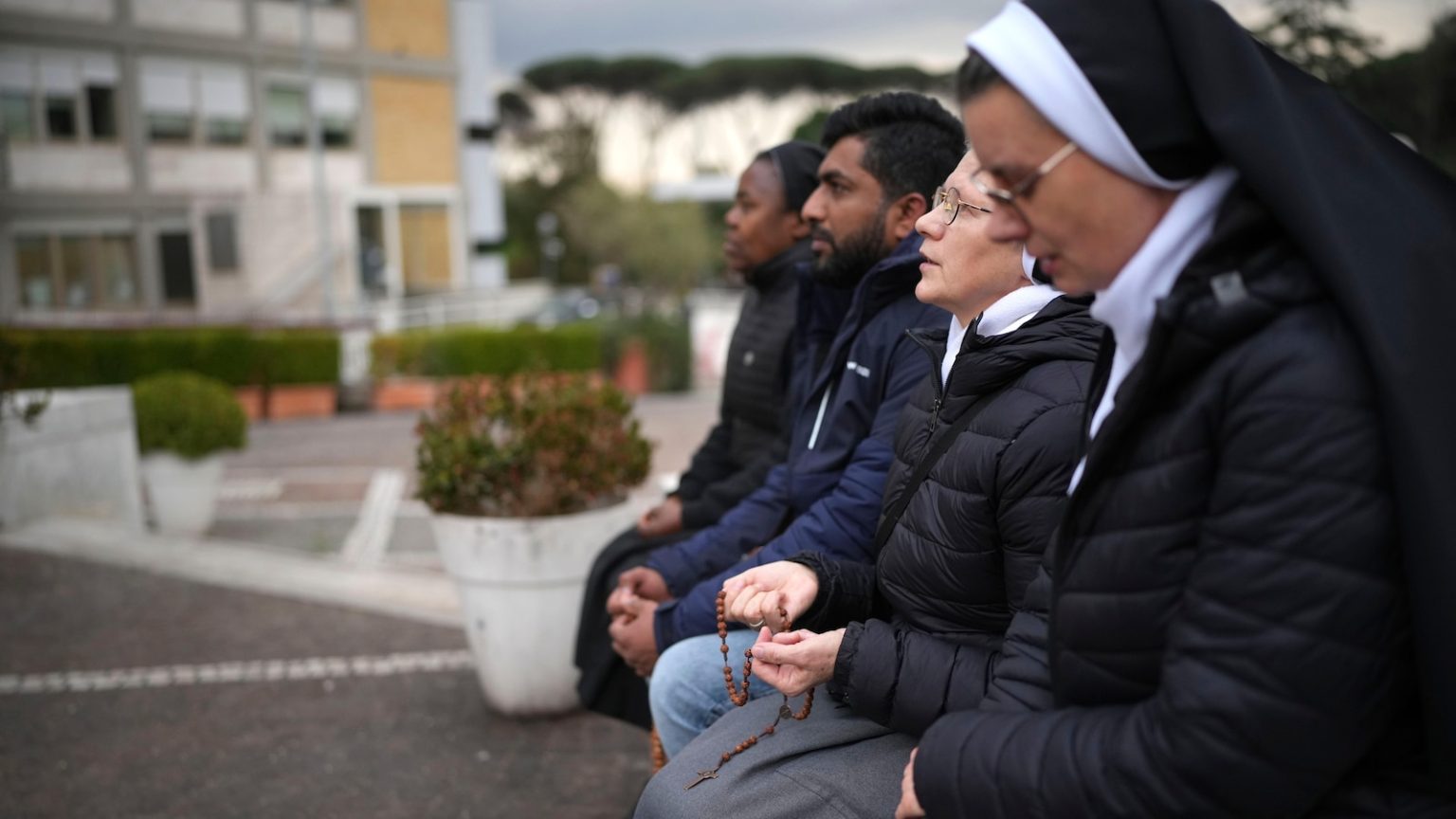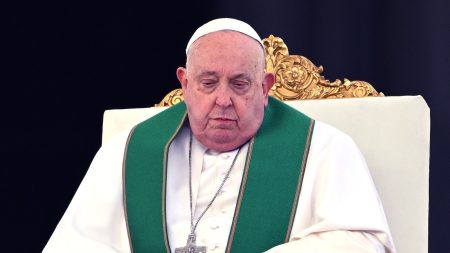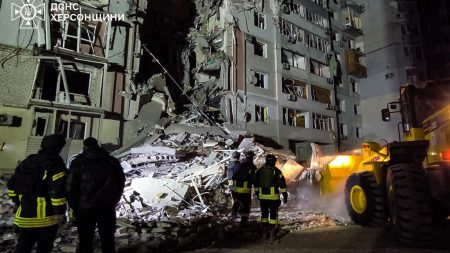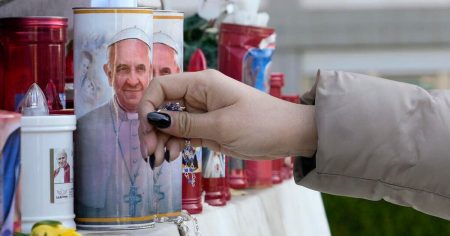Pope Francis Continues Recovery from Pneumonia, Showing Resilience Amid Health Challenges
Pope Francis marked a crucial milestone in his hospital stay on Friday, demonstrating his resilience as he battles pneumonia and a complex respiratory infection. The Vatican reported that the 88-year-old pontiff had a restful night and even managed to get up and enjoy breakfast, signaling a small but positive step in his recovery. Francis, who is being treated at Rome’s Gemelli Hospital, was admitted on February 14 after a bout of bronchitis worsened into a more severe condition. His doctors diagnosed a complex respiratory infection, involving bacteria, viruses, and other organisms, which led to pneumonia in both lungs, compounded by asthmatic bronchitis. The Vatican has emphasized the need for "absolute rest" as part of his treatment plan.
Despite the slight improvement in his condition, the road to recovery is expected to be long and uncertain. Medical experts have cautioned that pneumonia in an elderly and fragile patient like Francis could take up to two weeks to fully recover from, especially given the challenges of effectively expelling fluid from his lungs. His heart is functioning well, but his overall health remains a concern. Francis, who is overweight and has limited physical mobility due to knee problems, has a history of respiratory issues, including the removal of part of one lung when he was younger. He has also been open about his struggles with being a cooperative patient in the past, which adds another layer of complexity to his care.
Vatican Provides Updates on Pope’s Condition and Addresses Speculation
The Vatican has been providing regular updates on Pope Francis’ health, aiming to reassure the public and quell speculation about his condition. On Thursday, officials reported a “slight improvement” in his overall clinical state, though it remains unclear whether the various drug therapies he is undergoing will be fully effective. The Vatican’s morning bulletin on Friday also offered a hopeful note, stating that Francis had a good night’s rest and even managed to get up for breakfast. These small but significant milestones are crucial in assessing his progress.
As Francis continues his recovery, questions have naturally arisen about his ability to continue serving as pope, especially if his health were to deteriorate irreversibly. The Vatican has not indicated that Francis is incapacitated or considering resignation, but the topic has been a subject of discussion among some cardinals. Cardinal Jean-Marc Aveline, the archbishop of Marseille, France, acknowledged that “everything is possible,” while Cardinal Gianfranco Ravasi suggested that Francis might consider stepping down if his ability to connect with people—a hallmark of his papacy—were to be severely compromised. This line of reasoning echoes the precedent set by Pope Benedict XVI, who retired in 2013 due to his declining physical health, becoming the first pope to do so in 600 years.
Pope Francis’ Health History and the Challenges of Aging
Pope Francis’ current health struggles are not isolated incidents but rather part of a larger narrative of his ongoing battle with various ailments. In 2023, he suffered from an acute case of pneumonia, and he has long been prone to respiratory infections, particularly during the winter months. His advanced age and pre-existing conditions make him particularly vulnerable to complications, as his body struggles to recover from infections that might be more manageable for younger, healthier individuals.
Francis’ health challenges are further compounded by his physical limitations. He uses a wheelchair due to chronic knee pain, and his sedentary lifestyle, combined with his weight, adds to the strain on his body. Despite these challenges, Francis has continued to work during his hospital stay, including making important decisions such as the appointment of bishops. His determination to fulfill his duties, even while unwell, reflects his commitment to the papacy and his belief that the role of pope is a lifelong vocation.
The Vatican’s Handling of the Pope’s Health and the Bigger Picture
The Vatican has walked a delicate balance in handling the pope’s health, striving to provide transparency without fueling unfounded speculation. While Francis’ hospitalization has understandably raised concerns, there is no indication that he is considering resignation or that his condition has rendered him incapacitated. The Vatican’s communications have emphasized that Francis is receiving the best possible care and that his recovery is ongoing, while also acknowledging the uncertainties inherent in treating an elderly patient with multiple health challenges.
This situation also highlights the broader discussions within the Catholic Church about the role of a pope’s health in their ability to serve. While canon law does not provide explicit provisions for a pope becoming incapacitated, the example set by Pope Benedict XVI has opened the door to the possibility of resignation if a pope feels he can no longer fulfill his duties. However, Francis has shown a deep commitment to the papacy, even in the face of significant physical challenges, and there is no sign that he is wavering in that commitment.
Global Prayers and Support for Pope Francis’ Recovery
As Pope Francis continues his recovery, he has been surrounded by the prayers and well-wishes of Catholics and people of goodwill around the world. His resilience in the face of illness, combined with his unwavering dedication to his faith and his flock, has inspired many to reflect on his remarkable papacy and the impact he has had on the global stage. While his health remains a cause for concern, the outpouring of support serves as a reminder of the deep affection and respect that so many have for him.
In conclusion, Pope Francis’ hospitalization has brought his health struggles into sharp focus, but it has also highlighted his indomitable spirit and his commitment to serving the Catholic Church. As he recuperates, the world waits with bated breath, hoping for his full recovery and continued leadership. His journey is a testament to the human spirit’s ability to persevere in the face of adversity, and it serves as a powerful reminder of the enduring importance of faith, hope, and resilience.















